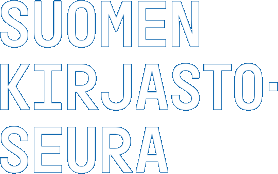THE FINNISH Broadcasting CompanyYLE inquired on its website in August what schools should be teaching today. The opinions varied a lot: “more of this, less of that, and none of that”. The first things in the ‘must’ list were associated with libraries.
Curriculum reform 2016 – an opportunity for libraries
THE FINNISH Broadcasting CompanyYLE inquired on its website in August what schools should be teaching today. The opinions varied a lot: “more of this, less of that, and none of that”. The first things in the ‘must’ list were associated with libraries. People think that media literacy, source criticism, argumentation and information seeking are crucial.
IT IS VITAL for libraries to follow the debate and participate in it. The goals and methods of schools and education continuously intersect with library activities. The problem is whether schools see libraries in the same way as we ourselves do. Do they notice the pedagogical work of libraries that strengthens children and adolescents’ media and literacy skills also through play, games and other activities?
A NEW national core curriculum will be adopted in pre-primary and basic education in 2016. Curriculum planning is always an opportunity for libraries. It is highly important to be involved in local planning. We must stay in the picture about the progress of the reform and build networks with decision-makers, principals and teachers. It is again time to highlight the significance of libraries as active learning environments, in which pupils as well as teachers are provided with guidance and support in information retrieval and literacy, in addition to materials.
THE PEDAGOGICAL spirit of the curriculum is to shift the emphasis from content to methods and to the ways in which things are learned. Phenomenon-based learning, project learning and various ways of collaboration will play a key role in the future.
IN PHENOMENON-BASED LEARNING, the boundaries of subjects become blurred as phenomena are integrated in new ways. This requires careful planning from schools and libraries. We must have a shared view on goals, methods and evaluation. In the best-case scenario, libraries can even be a bridge between different subjects – a place that offers content and competence to support learning at the margin of the classroom and the subject, as well as outside of them.
INFORMATION and communication technology skills are studied across all subjects. Pupils’ library and information seeking skills are not the responsibility of mother tongue teachers alone: all teachers teach their own subject’s language and vocabulary, principles of knowledge construction, sources of information and critical literacy. Information retrieval skills and source criticism are particularly important in such subjects as psychology, biology and geography that are counted as ‘general studies’ (reaaliaine in Finnish) in the Finnish matriculation examination. Library collections and expert staff are needed even more due to the problems that have emerged in online information seeking. It may be convenient to find results via Google, but at their worst, they may offer information bubbles and silos of ideas sealed against criticism.
LIBRARIES need pedagogical competence and guidance skills as well as courage to interact and lobby. The best possible service is not offered by a library employee who gives pupils ready-made answers. The best service involves helping pupils to think independently, to ask and to question, and to evaluate the information they have found.
